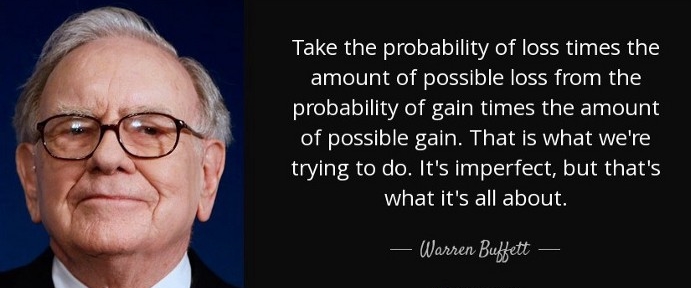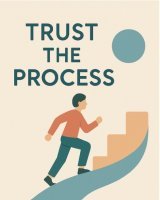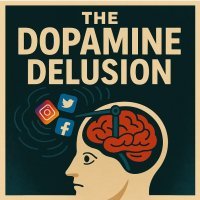Improved Decision Making
Use Probabilistic Thinking
The First Key Is Just To Be Less Sure About Everything, And Then Apply Probabilistic Thinking.

Improved Decision Making - Introduction
To set the scene for improved decision making let's consider this TED presentation by Julia Galef in which she argues that having good judgment, making accurate predictions,
making good decisions, is mostly about which mindset you're in.
Why you think you're right - even if you're wrong - aka "Motivated Reasoning"...!
Soldier Mindset - Defend At All Costs
"So I'd like you to imagine for a moment that you're a soldier in the heat of battle. Maybe you're a Roman foot soldier or a medieval archer or maybe you're a Zulu warrior. Regardless of your time and place, there are some things that are constant. Your adrenaline is elevated, and your actions are stemming from these deeply ingrained reflexes, reflexes rooted in a need to protect yourself and your side and to defeat the enemy."
Scout Mindset - Seek To Understand What's Really There
"So now, I'd like you to imagine playing a very different role, that of the scout. The scout's job is not to attack or defend. The scout's job is to understand. The scout is the one going out, mapping the terrain, identifying potential obstacles. And the scout may hope to learn that, say, there's a bridge in a convenient location across a river. But above all, the scout wants to know what's really there, as accurately as possible. And in a real, actual army, both the soldier and the scout are essential.
But you can also think of each of these roles as a mindset - a metaphor for how all of us process information and ideas in our daily lives".
Julia closes her presentation with a question:
"...if we really want to improve our judgment as individuals and as societies, what we need most is not more instruction in logic or rhetoric or probability or economics, even though those things are quite valuable.
But what we most need to use those principles well is scout mindset.
- We need to change the way we feel.
- We need to learn how to feel proud instead of ashamed when we notice we might have been wrong about something.
- We need to learn how to feel intrigued instead of defensive when we encounter some information that contradicts our beliefs.
So the question I want to leave you with is:
What do you most yearn for?
Do you yearn to defend your own beliefs?
Or do you yearn to see the world as clearly as you possibly can?"
3 Keys To Improved Decision Making
Here are 3 keys that will improve your ability to predict and assess the effects of your choices and thus lead to improved decision making.
[1] Be less sure
Overconfidence is the bias that is most prevalent, especially among men, the rich, and experts.
Not everyone is overconfident but nevertheless it's a good working rule to assume that you’re more confident about each step of the decision-making process than you ought to be.
So the first key to improved decision making is just to be less sure about everything.
If you can accept that you're most likely to be over-confident about the logic of your decision making process then consider alternative outcomes than the ones you expect or are hoping for.
[2] “How often does that typically happen?”
The best start point for improved decision making is to ask the question: “How often does that typically happen?”
For example, if you are considering working with a business startup, you could ask: "What percentage of startups fail/succeed?"
This will help you form a prediction. It is referred to as the base rate or as I would refer to it, the base line.
You can ask the same question when you are making a judgement call on potential outcomes, for example: "What percentage of times has outcome A occurred compared with outcome B?"
The aim with both the prediction and the judgment aspects of improved decision making is move beyond the specifics of the scenario under review and to look at the broader picture with other similar scenarios.
[3] Use probabilistic thinking
"Probabilistic
thinking is essentially trying to estimate, using some tools of math
and logic, the likelihood of any specific outcome coming to pass."
Probabilistic Thinking

Shane Parrish of Farnham Street summarised this wonderfully:
"Successfully thinking in shades of probability means roughly identifying
what matters, coming up with a sense of the odds, doing a check on our
assumptions, and then making a decision. More people talk about probability than use it to think and make
decisions. Probability is full of nuance not the convenience of black
and white thinking. We can act with a higher level
of certainty in complex, unpredictable situations. We can never know the
future with exact precision. Probabilistic thinking is an extremely
useful tool to evaluate how the world will most likely look so that we
can effectively strategize."
In a recent tweet storm Shane expanded on this very succinctly:
"Probability means different things to different people.
- Probabilistic thinking is essentially trying to estimate, using some tools of math and logic, the likelihood of any specific outcome coming to pass.
- The core of probabilistic thinking is understanding that nearly infinite alternative outcomes could have taken place than did.
- This means nearly infinite possibilities are possible going forward, which doesn’t mean they are equally probable.
- Probability is about more than the odds. It’s about how we weigh our knowledge, the methods in which we use to deal with our ignorance, and understanding that in the real world the range of outcomes is rarely finite."
Applying Probabilistic Thinking
The ABC of probabilistic thinking:
Avoid
Binary
Choice
This is about living with complexity and improved decision making based on probabilities.
# Identify The Relevant Variables
# Attach Probabilities To Each
# Apply Bayesian Thinking - by reviewing each new variable in the context of all prior information you hold and see if it:
- Changes your previous assessment of probability, or
- Changes your current assessment of the new variable.
# Understand The Variations - are you are dealing with
variations within a predictable variation from the mean [Bell curve] or
are there extreme variations [Fat tail] which have a higher probability
of occurring.
- For example, the range of variation in the height of people is not that great. The variation from the smallest dwarf to the largest giant is limited within a predictable range.This fits with the Bell curve.
- Whereas the range of variation on people's incomes can be huge for example $10k per annum to $10million + per annum and thus the chance of someone in a sample group with an income massively above the mean is far more probable
# Understand Your Optimism Bias - our probability estimates are more likely wrong on the over optimistic side and also more likely underestimated on the side of something going wrong.
The Good Judgment Project
The Good Judgment Project [GJP] was formed in 2011 with the objective of finding out whether some people are naturally better than others at prediction and whether prediction performance could be enhanced. The Good Judgment Project was one of five academic research teams that competed in an innovative tournament funded by the Intelligence Advanced Research Projects Activity (IARPA), in which forecasters were challenged to answer the types of geopolitical and economic questions that U.S. intelligence agencies pose to their analysts. The IARPA initiative ran from 2011 to 2015 and recruited more than 25,000 forecasters who made well over a million predictions on topics ranging from whether Greece would exit the eurozone to the likelihood of a leadership turnover in Russia to the risk of a financial panic in China. The Good Judgment Project decisively won the tournament—besting even the intelligence community’s own analysts.
The Good Judgment Project identified the traits shared by the best-performing forecasters in the Intelligence Advanced Research Projects Activity tournament, and these are all qualities required for improved decision making:
Further Reading:
Return from "Improved Decision Making" to: Mental Models
LATEST ARTICLES
Staying Committed When You Can't See Progress - The Psychology of Grit
 Uncertainty Is Not The Absence Of Progress, Only The Absence Of Reassurance. One of the most destabilising experiences in modern life is not failure, but uncertainty and staying committed when you can…
Uncertainty Is Not The Absence Of Progress, Only The Absence Of Reassurance. One of the most destabilising experiences in modern life is not failure, but uncertainty and staying committed when you can…The Battle For Your Mind - How To Win Inner Freedom In A Digital Age Of Distraction
 From External Events to Inner Events. We often think of “events” as things that happen out there: the traffic jam, the rude comment, the delayed email reply. But what truly shapes our experience is wh…
From External Events to Inner Events. We often think of “events” as things that happen out there: the traffic jam, the rude comment, the delayed email reply. But what truly shapes our experience is wh…How to See Your Thoughts Without Becoming the Story
 A Practical Guide to Thought-Awareness. You can spend your life inside the stories of your mind without ever learning how to see your thoughts clearly and objectively. Most of the stuff we tell oursel…
A Practical Guide to Thought-Awareness. You can spend your life inside the stories of your mind without ever learning how to see your thoughts clearly and objectively. Most of the stuff we tell oursel…The Collison Decision Matrix - A Simple Framework for Better Choices
 The Collison Decision Matrix Is A Practical Everyday Thinking Tool. Most of us spend a surprising amount of time worrying about decisions. From small ones such as what to wear, what to eat, what to te…
The Collison Decision Matrix Is A Practical Everyday Thinking Tool. Most of us spend a surprising amount of time worrying about decisions. From small ones such as what to wear, what to eat, what to te…The Power Of Asking The Right Question
 The Power Of Asking The Right Question Lies In The Quest For Insight. To experience the power of asking the right question you must develop the practice of asking questions. The best way to improve th…
The Power Of Asking The Right Question Lies In The Quest For Insight. To experience the power of asking the right question you must develop the practice of asking questions. The best way to improve th…Site Pathways
 Here is a site pathway to help new readers of Zen-Tools navigate the material on this site. Each pathway is based around one of the many key themes covered on this site and contain a 150 word introduc…
Here is a site pathway to help new readers of Zen-Tools navigate the material on this site. Each pathway is based around one of the many key themes covered on this site and contain a 150 word introduc…How To Live With Contradiction - Beyond Thought Let Stillness Speak
 A major impact on so many peoples' lives is the situational contradiction of unfilled realistic expectations. So where does all this leave us? Well here we are, with mental equipment that is more lim…
A major impact on so many peoples' lives is the situational contradiction of unfilled realistic expectations. So where does all this leave us? Well here we are, with mental equipment that is more lim…How To Trust The Process Of Mindfulness - Right Now
 In mindfulness, the process isn’t some distant goal — it's what is happening right now. When we talk about how to trust the process of mindfulness the credibility of the process is heavily dependent…
In mindfulness, the process isn’t some distant goal — it's what is happening right now. When we talk about how to trust the process of mindfulness the credibility of the process is heavily dependent…Inner Mastery For Outer Impact - Mental Clarity For Effective Action
 Insights only matter if they translate into consistent action. In a world crowded with quick fixes and motivational soundbites, the theme “Inner Mastery for Outer Impact” calls us to something more e…
Insights only matter if they translate into consistent action. In a world crowded with quick fixes and motivational soundbites, the theme “Inner Mastery for Outer Impact” calls us to something more e…The Wise Advocate - Helping You Achieve The Very Best Outcome
 The focus of your attention in critical moments of choice either builds or restricts your capacity for achieving the best outcome. When we talk of 'The Wise Advocate' its easy to think of the consigl…
The focus of your attention in critical moments of choice either builds or restricts your capacity for achieving the best outcome. When we talk of 'The Wise Advocate' its easy to think of the consigl…Trust The Process - Beyond The Cliche
 The phrase "trust the process" has become a cliche, the woo-woo mantra of the "self help" industry. Those three little words feel like they ought to mean something useful but hidden behind them are a…
The phrase "trust the process" has become a cliche, the woo-woo mantra of the "self help" industry. Those three little words feel like they ought to mean something useful but hidden behind them are a…The Dopamine Delusion - Why Anticipation Beats Achievement
 The thrill we feel is not in the having, but in the wanting. The more we have, the more we want. The more things we acquire and the easier things get for us, the more discontent we feel. The more spo…
The thrill we feel is not in the having, but in the wanting. The more we have, the more we want. The more things we acquire and the easier things get for us, the more discontent we feel. The more spo…